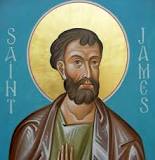Living and Praying the Paschal Mystery
(1 Cor 15:1-8; Ps 19; Jn 14:6-14)
*****************************************
Today’s first reading begins with St. Paul reminding his readers of the Good News that he proclaimed to them in which they were “standing,” and by which they were “being saved.”
That Good News is ours to “stand in” as well. We are invited to follow Jesus into new eternal life by living his Paschal Mystery and through an intimate relationship of prayer.
We can rephrase the description Jesus gives of himself as the way, truth and life thus: Jesus is the truth, and this truth is the way to eternal life. St. Paul goes on to describe this Good News as the passion, death, resurrection and appearances of Jesus. We can add to that pattern his ascension into heaven, and the sending of his Spirit upon the early church at Pentecost. So, when Jesus invites us to “follow him,” he is inviting us to live out in our own lives the Paschal Mystery: his passion, death, resurrection, appearances, ascension and Pentecost. As some writers remind us, Jesus said “follow me” much more than “worship me,” so we need to take this invitation seriously.
But how do we do that? We can begin by being aware of our own passion, how we have been hurt in life. Next, we can list our losses, our deaths, because with every hurt there is a loss of some kind. Third, we need to face how we have too often survived (our resurrection) by stuffing our emotions of anger and sadness, denying our wounded reality and blaming others instead of dealing with our hurt.
The appearances for the disciples was a time of learning more about the Kingdom of God Jesus came to inaugurate, and also learning to grieve and mourn his loss (why he told Mary Magdalene not to cling to him). We also have to grieve and mourn our losses (the appearances for us), and eventually give our departed loved ones back to God to receive their spirit to be with us in a new way.
The ascension becomes for us the need to forgive from the heart all those who have hurt us in any way, and a letting go of anger, resentment and any desire for revenge. It is then that the Good News really becomes good news for us, as we can move forward with our lives full of peace, joy and a sense of freedom and well-being.
In the gospel, Jesus adds the dimension of prayer to that Paschal Mystery experience. To know him is to know the Father, because he and the Father are one. So, the relationship we have with Jesus is the relationship we will have with the Father. The more intimately we can come to know Jesus, the more intimate will be our relationship with the Father. That happens best through time spent in contemplative prayer – just resting in God’s presence as John rested his head on Jesus’ chest at the last supper, listening to his heart beat. This will always be a challenge for us in our busy, competitive, achievement-oriented world, but a necessary one if we are to really experience that good news of Jesus. It is a matter of establishing priorities. If we are too busy to enter into contemplative prayer, then we are too busy!
At the end of the gospel, Jesus adds another method of prayer – intercessory prayer. Whatever we ask him “in his name,” Jesus tells us he will do. How can we reconcile this with the reality of so many seemingly unanswered prayers? The key is in the words “in my name.” To pray “in Jesus’ name” is to pray for what Jesus wants to give us, and he told us he wants to give us the Holy Spirit in his teaching on prayer (Luke 11:13). Step Eleven of the Twelve Step program puts it this way: “seeking only the knowledge of God’s will for me and the power to carry it out.” That is praying “in his name.”

The apostles we celebrate today are excellent examples for us of two followers of Jesus who certainly had an intimate prayerful relationship with Jesus, and also followed him through is Paschal Mystery, to the point of giving their lives for the sake of the gospel. James, believed to be a first cousin of the Lord, became the leader of the Jerusalem community, and was martyred in that role. Philip received a personal call to follow Jesus, recruited a skeptical Nathaniel and was asked how much bread was on hand at the multiplication of the loaves. Tradition holds that he preached in Asia Minor and was martyred there at the Hierapolis.

St Philip
The Eucharist is an intimate meal with Jesus, our greatest prayer that includes both petition and contemplation. It is a making present of the Paschal Mystery of Jesus that then sends us out to spread this Good News to all we meet.




Thanks Bishop for the following messages on spreading the Good News of the Risen Lord and praying the Paschal Mystery. So we must adapt to pray the contemplative prayer along with other prayers and our busy schedule. To pray in his name is praying the contemplative pray , the chaplet of Devine Mercy and the rosary is part of the Paschal Mystery. I pray these prayers pretty much everyday and during my personal life . Jesus I surrender myself to you , you can do unto me as you want and I am totally yours. So, we should be like St. Philip and St. James on how they follow Jesus and trust him on the teachings he has given us and instruct us to spread the word to everyone. Amen. Many Blessings !
You should be Blessed by the Lord for doing all these good things and spreading the Good News. Thanks for the lovely messages that brightens my day and deepens my understanding. Blessings ! Blessings!
We should always bear fruits just like Jesus Christ as he showed us using vineyard to produce bunch of Grapes. The readings is telling us to believe the Holy Spirit is Jesus and he wants us to enter into the eternal life with him . It is the same thing for the entire week. I heard about the this passage during the mass on Friday.